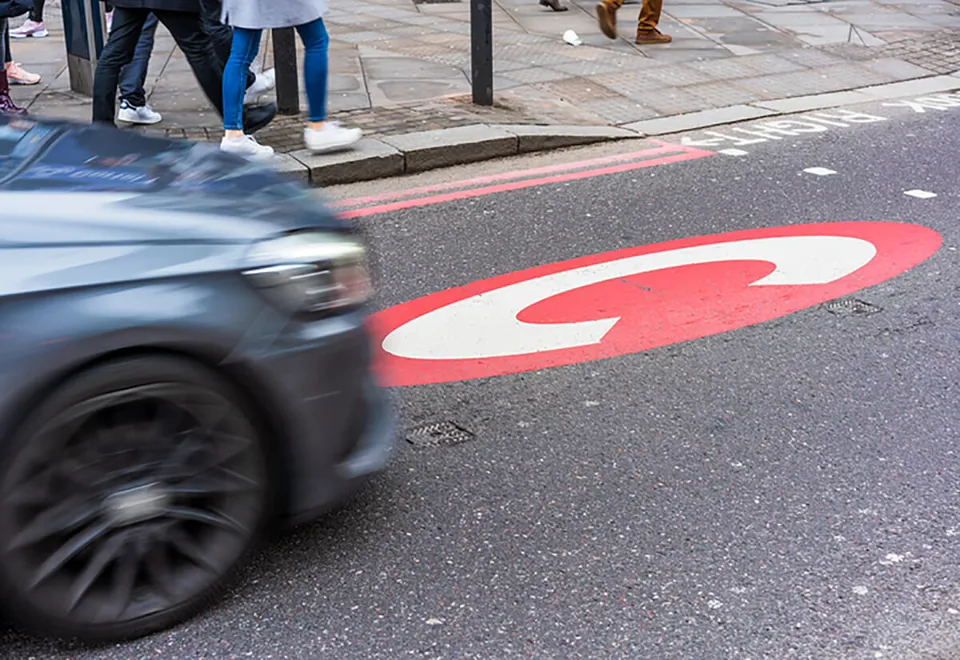Transport for London (TfL) is asking for views on the proposed increase to the congestion charge.
Since 2011 the daily congestion charge has remained at £10 (£9 if paid using CC Auto Pay or £12 if paid the next charging day).
TfL is now proposing an increase to the daily charge to £11.50 if paid in advance or on the day; £10.50 if paid using CC Auto Pay or £14 if paid the next charging day.
However, the Freight Transport Association (FTA) said that for the fleet industry it is “a tax rise for businesses”.
The FTA has long campaigned on behalf of its members by appealing to TfL to re-think the charge on freight operators who have no option other than to use the city’s roads and congestion charge zones.
Natalie Chapman, FTA head of policy London & South East, said: “Whilst many congestion charge users face a potential 15% increase in the daily charge this summer, most transport companies are registered on the fleet scheme so will be in line for an over-inflationary 17% hike if the proposed changes go ahead.
“FTA realises that the Congestion Charge is to deter non-essential or discretionary journeys, but we consider this as a tax on businesses which have little alternative but to use trucks and vans during the day.”
Meanwhile, the British Vehicle Rental and Leasing Association (BVRLA) has criticised TfL’s plans to increase the London Congestion Charge by 15%, and restated its view that all rental vehicles should be exempt.
“This 15% increase in the daily charge is completely unjustified and is in effect a tax rise on essential business users who have no choice but to drive in central London,” said BVRLA chief executive Gerry Keaney. “It is illogical that London cabs are exempt from the congestion charge but rental vehicles are not.”
Other changes that will be consulted on include enabling CC Auto Pay customers to pay via Direct Debit – in addition to the existing option of paying with a registered debit or credit card; the introduction of a simple online registration process for discounts; moving away from postal and phone registration and introducing reimbursements for charges paid via CC Auto Pay by NHS patients and staff.
TfL says the proposed increase to the charge will help maintain the deterrent effect of the charge in reducing unnecessary journeys and brings it in line with inflation when compared with other transport costs and public transport fares which have increased over time.
If no changes were made it anticipates an increase in traffic levels within the congestion charging zone.
Increasing the charge would generate an estimated £84m of additional revenue by the end of 2017/18 with any net revenue generated being invested in improvements to London's transport as required by law.
Since the congestion charge was introduced in 2003 more than £1.2 billion revenue has been invested in transport, including £960m on improvements to the bus network, £102m on roads and bridges, £70m on road safety, £51m on local transport/borough plans and £36m on sustainable transport and the environment.
Garrett Emmerson, TfL’s chief operating officer for Surface Transport, said: “We are keen to hear what Londoners and motorists have to say about the proposed changes to the congestion charging scheme.
“The proposed changes will ensure the congestion charge remains an effective deterrent to making unnecessary journeys in central London.
“We do listen to the views of our customers and have made significant changes to the scheme in recent years, including the removal of the Western Extension and the introduction of the hugely popular CC Auto Pay system.”
CC Auto Pay is an automated payment system which automatically records the number of days a vehicle travels within the charging zone each month and bills the account holder’s payment card accordingly.
Drivers registered for CC Auto Pay never have to remember to pay the charge, avoid fines and pay a reduced daily rate.
An annual £10 registration charge per vehicle applies to register for CC Auto Pay and account holders are able to register up to five vehicles per account.
More information on the consultation, including the supporting documents, is available on TfL’s website at: www.tfl.gov.uk/ccyourviews.
Visit the website to give your views on the proposals or call 0844 544 9780 for an information leaflet.
The 10 week public consultation closes on Friday 14 March 2014. TfL will then prepare a report for the Mayor setting out the comments received during the consultation. The Mayor will then make a decision on whether or not to go ahead with the proposals with or without modifications.


















Sage & Onion - 09/01/2014 11:59
I would urge all fleets to respond to the consultation paper with a resounding "strongly disagree" to the increase in the congestion charge. It is not justified at all for businesses that have no other viable transport choice to deliver their goods and services within the zone. Has there ever been any relevant impact study on the increase in traffic congestion on the boundary roads surrounding the zone? I cant remember seeing any! Don't let the Mayor get away with his unjustified tax hike.